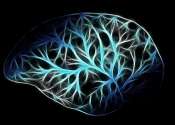Cold plasma patch could make immunotherapy more effective for treating melanoma
An interdisciplinary team of researchers at the UCLA Jonsson Comprehensive Cancer Center has developed a medicated patch that can deliver immune checkpoint inhibitors and cold plasma directly to tumors to help boost the immune ...
Feb 3, 2020
0
215









